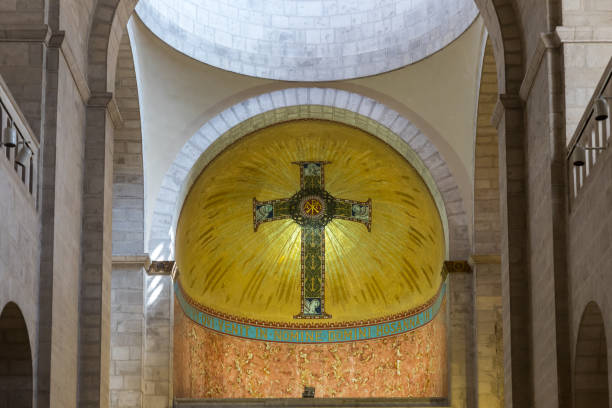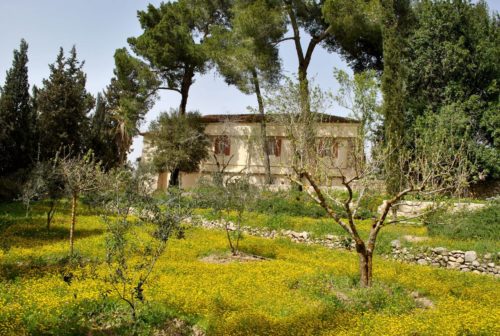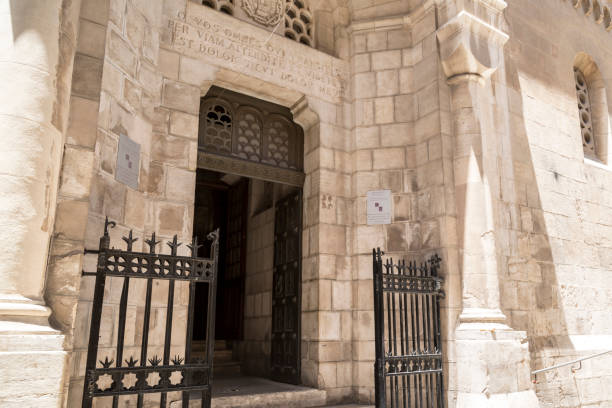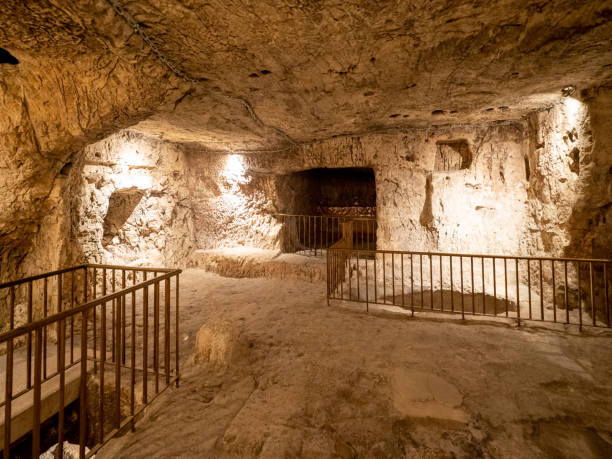
Sion is the biblical name of Jerusalem, City of Peace, symbol of the People of Israel, to which Mary belongs. It is also the Jerusalem of the end time, the future towards which we are moving, the place where Israel and the nations will gather together.
“Sion, this word evokes all the hopes of our vocation”. Fr. Theodore Ratisbonne
https://www.notredamedesion.org/
The Congregation
The Congregation of Notre Dame de Sion is an international Catholic congregation of women founded by Fr. Theodore Ratisbonne in 1843 in Paris, France.
The sisters came to the Holy land in 1856 and established an orphanage, a school and a pilgrim house at Ecce Homo. The Centre for Biblical Formation is located on the Via Dolorosa at Ecce Homo Convent.

the Bible . the People . the Land
The Constitution of the Congregation of Notre Dame de Sion calls us to witness to God’s faithful love for the Jewish people and God’s fidelity to the promises revealed to the patriarchs, matriarchs and prophets of Israel for all humanity. Sion is called by the vision of their founder, to an apostolic life characterized by a three-fold commitment to:
The Church,
The Jewish people,
A world of justice, peace and love.

The Notre Dame De Sion Centre for Biblical Formation (CBF)
The Notre Dame de Sion Centre for Biblical Formation was founded in 1982 at Ecce Homo Convent. The mission of CBF is a unique expression of the NDS Charism and is inspired by the vision of the Second Vatican Council which stressed the centrality of Scripture in the life of the Church, a reclaiming of our deep roots in Judaism and fostering interreligious dialogue.
The Centre offers programs of study centered on the Word of God: drawing on Jewish sources and tradition; visiting sites related to the biblical text; reflecting on relevant Church documents; and engaging with the peoples of the land.

the Bible . the People . the Land
CBF fosters knowledge and understanding of the Bible through scholarly engagement with the text in an ecumenical environment.
CBF welcomes participants from around the globe who come to Jerusalem to study scripture with international and local biblical scholars. Christian and Jewish academics use various sources and interpretations, to explore unique and diverse perspectives about the text in context.
Participants come from a variety of backgrounds, contexts, academic interests, professions, and denominations. This diversity is a rich resource for interpretation and discussion of biblical texts.

.svg)